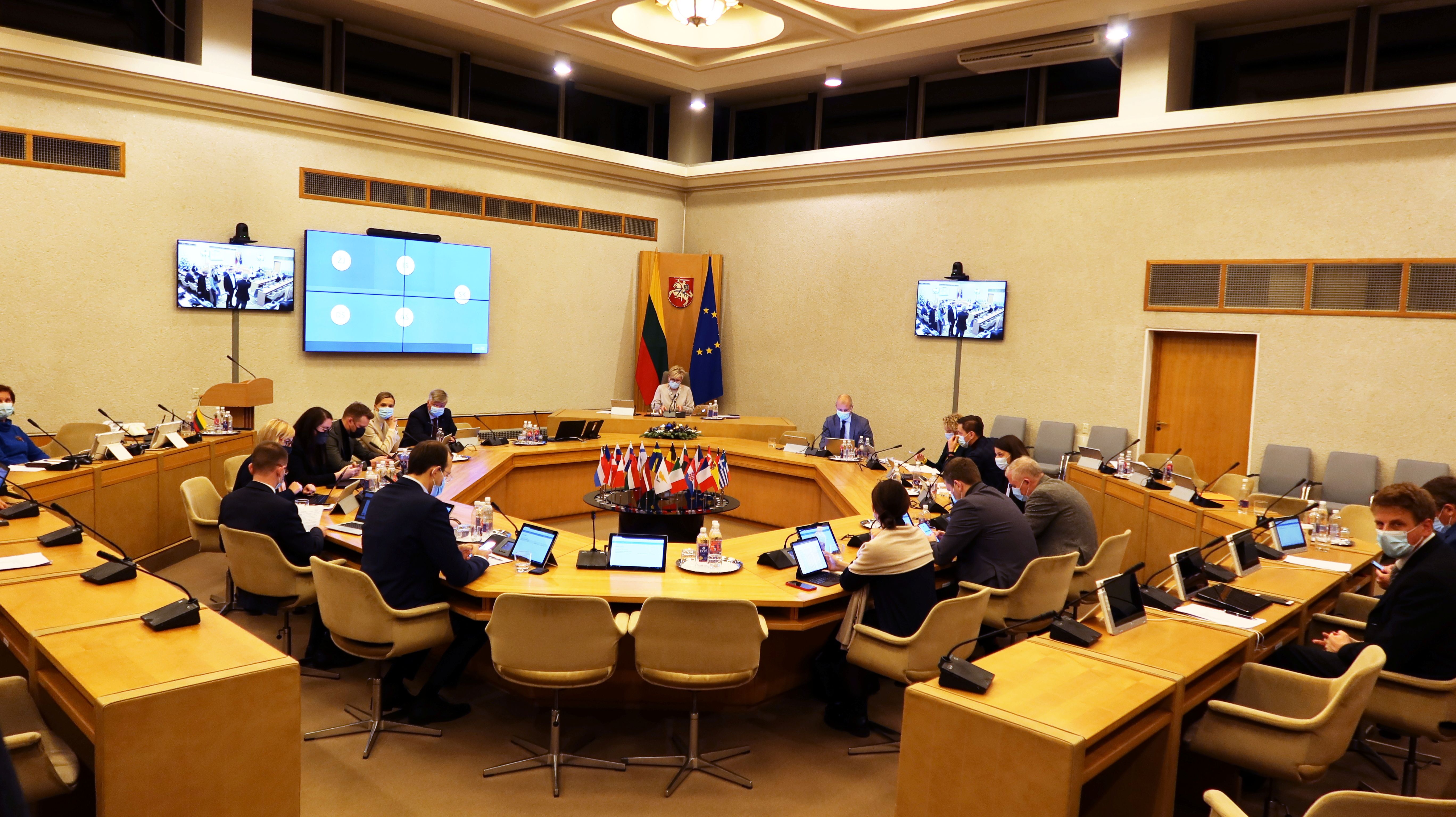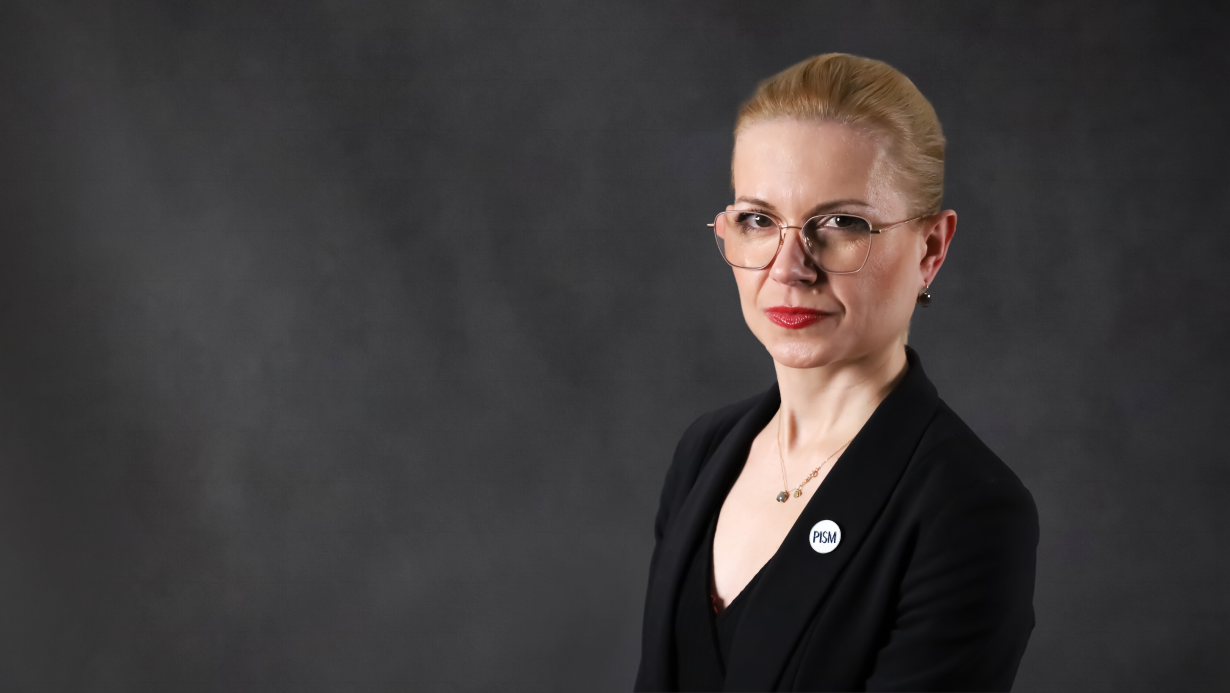Priorities of the New Lithuanian Government
On 11 December 2020, a new Lithuanian government was sworn in. It is formed of the conservative Union of the Homeland–Lithuanian Christian Democrats (TS-LKD) and two liberal parties. The differences within the coalition, including on the economy, will be a challenge, however, there are no fundamental differences in the external dimension. Lithuania will focus on the alliance with the U.S. and on European politics. The government has announced actions in the eastern dimension and in strengthening cooperation in the Baltic Sea region. Poland will remain an important partner for Lithuania, but the intensity of the cooperation to date may be limited.

Change of Political Scene
December’s parliamentary elections changed the ruling coalition. The majority in the 141-seat Seimas was obtained by the Conservatives of TS‑LKD (50 deputies), and they, together with the Liberal Movement (13 seats) and the Freedom Party (11 seats), formed a new cabinet. After eight years, the centre-left parties lost power, including the largest grouping, the Lithuanian Farmers and Greens Union (LVŽS), which received just 32 seats against the previous 56. The opposition also will include the Social Democrats, the populist Labour Party and the group of Lithuanian Poles. Unlike in 2012 and 2016, these parties did not exceed the 5% electoral threshold but won three seats total in single-member constituencies.
As head of government is Ingrida Šimonytė, an independent MP who for years has been associated with TS-LDK and a former finance minister and candidate of the party in the presidential elections of 2019. The Conservatives now have eight out of 14 ministries, including foreign affairs with Gabrielius Landsbergis heading it up, as well as the ministries of the interior, national defence, energy, and finance. Liberal Movement Leader Viktorija Čmilytė-Nielsen became Speaker of Parliament while Aušrinė Armonaitė, the leader of the Freedom Party, which was established in 2019, is minister of economy and innovation. The Liberals received a total of four portfolios, including environment and justice, which were taken over by Ewelina Dobrowolska from the Polish community and the acting lawyer in defence of minority rights in Lithuania.
The Priorities of the Ruling Coalition
As a first step, the Šimonytė government will have to increase its efforts to fight the pandemic. Lithuania is facing a record peak of incidence: in early December 2020, for the first time it recorded more than 3,000 daily infections compared to several dozen daily in spring. The pandemic has exposed the personnel and funding shortfalls in the health service. The remedy is to be partial privatisation. Šimonytė also sees the need to de-politicise crisis management, centralisation of the response, and closer cooperation with experts. The government will also focus on preventing the effects of the economic slowdown caused by the pandemic. It wants to increase the investment attractiveness of the country, including by minimising barriers to entry to the Lithuanian market, which is particularly supported by the Liberals. For this purpose, the new authorities intend to reform the tax system and have announced reductions in VAT (even to the rates from before the 2008 crisis, i.e., 18%), and income tax by 1.25% per annum. The impulse for the domestic market is to be the increase in the share of the high-tech sector from the current 3.6% to 7% in 2024. Therefore, research-and-development funding is to increase to 2% of GDP by 2030 (compared to 0.9% now). At the same time, spurring innovation is intended to support state energy policy, including the transformation of cities towards climate neutrality and the achievement of EU goals in this area by 2050, as well as the creation of a circular economy model.
Implementation of the government’s programme is favoured by the country’s stable economy, despite the pandemic. According to forecasts by Lithuanian Bank, its GDP is to decrease by 2% at the end of 2020 , and in 2021 by 3.1%. The good situation in Lithuania is confirmed by a report by the European Commission in which the country is forecasted to record the smallest economic decline (2.2%) among EU countries in 2020 and has a chance of stable growth in the next two years (3% and 2.6%, respectively).
As far as economic management is concerned, the new government does not support the interventionism of the former cabinet but wants—especially the Conservatives—to continue some LVŽS initiatives in the field of social policy. This applies, for example, to further increasing the financing of social assistance or changes in the pension system. At the same time, prioritising the fight against poverty or reducing the differences between the poorest and richest regions of the country (e.g., the capital’s GDP per capita is 112% of the EU average but in other parts of the country it ranges from 41% to 77%) are in line with the vision of President Gitanas Nausėda, a supporter of the welfare state.
Foreign Policy
Lithuania’s goals in external actions will not change significantly. The security of the country will remain the priority, as will the main direction of activity—strengthening the strategic partnership-alliance with the U.S. The government will seek to increase the presence of American soldiers on Lithuanian territory. Lithuania’s credibility on the NATO forum is expected to be supported by plans to increase defence policy funding to 2.5% (by 2030). In the security dimension, the importance of regional cooperation in the Baltic Sea basin of the Baltic and Nordic states (the so-called NB8) will increase.
From Lithuania’s perspective, the EU will remain the guarantor of economic and political stability in Europe. However, while the Conservative-Liberal government may be more involved than the previous one in maintaining financial discipline in the euro area, Lithuania will remain outside the main body of supporters of deepening integration in the political dimension. At the same time, the government will want to strengthen the economic attractiveness of the state by eliminating investment barriers, including for foreign entities. Development is to be fostered by the implementation of the EU’s climate goals, which will not only stimulate the economy but also increase the chances of receiving subsidies under the Reconstruction Fund or others, or those allocated for the energy transformation. With Brexit, Germany’s role will increase in the EU and Landsbergis has already announced closer cooperation. The Lithuanian government may also be more willing to engage in European security initiatives, hoping for greater favour from France. The Lithuanian government is also assuming active eastern policy, especially in the face of the growing threat of Russia's growing influence in Belarus. Therefore it promises an even greater commitment to support the democratic transition of the latter country. At the same time, Lithuania will try to have an active role in the development of the Eastern Partnership. Among the priorities will remain the efforts to reduce the possibility of energy sales to the EU by the Belarusian nuclear power plant in Astravyets, which Lithuania considers a threat. These three areas that are most important to Lithuania—security, eastern policy and energy—will, in turn, determine cooperation with Poland. The same areas are considered for the development of a strategic partnership, which, however, the government programme does not precisely define.
Conclusions and Perspectives
The change in the Lithuanian political scene and assumption of power by the central-right opposition will primarily affect internal policy. The new coalition will focus on continuing the fight against COVID-19 and on mitigating the effects of the crisis caused by the pandemic, and then stimulating the domestic market to grow rapidly. However, the challenge will be to maintain coherence on economic issues, including reconciling social policy, a lean approach to public finance management, and a liberal vision of business. On the other hand, the division of energy and environmental portfolios between conservatives and liberals indicates that the agreements on climate policy, which is becoming more and more important in the EU agenda, constitute a consensus both between the coalition partners and between ministries.
In foreign policy, Lithuania will continue to focus on security issues and involvement on the EU forum. This will mean the further development of the alliance with the U.S., which will likely be supported by the presidency of Joe Biden. At the same time, one can expect intensification of cooperation with Germany and greater openness to relations with France. This could result in limiting the potential of cooperation with Poland, despite the fact that the Lithuanian government points to it as an important partner in the implementation of its priorities. Disputes concerning the Polish minority may reverberate again, e.g., as to the principles of the original spelling of names and surnames. Therefore, closer cooperation of their presidents within the framework of the recently established Presidential Council may serve to maintain the achievements of recent years in Polish-Lithuanian relations. Through the council, Poland could remind Lithuania, for example, to implement commitments it has agreed to monitor and support minority education.


